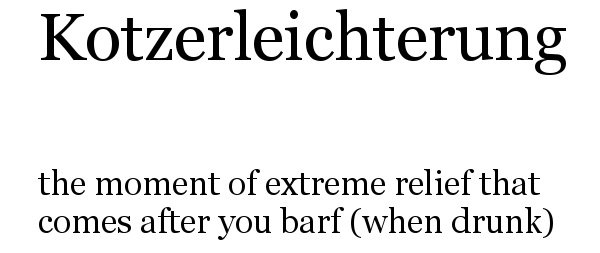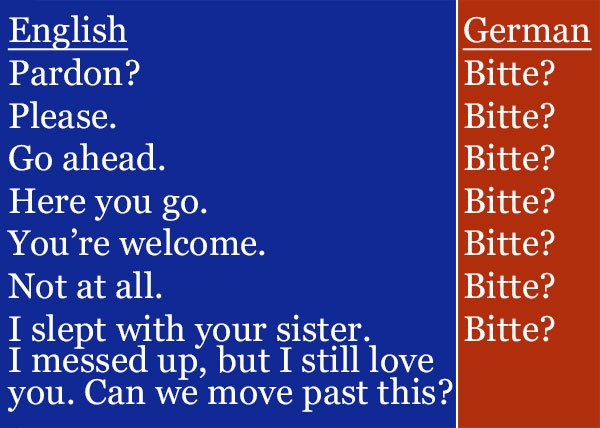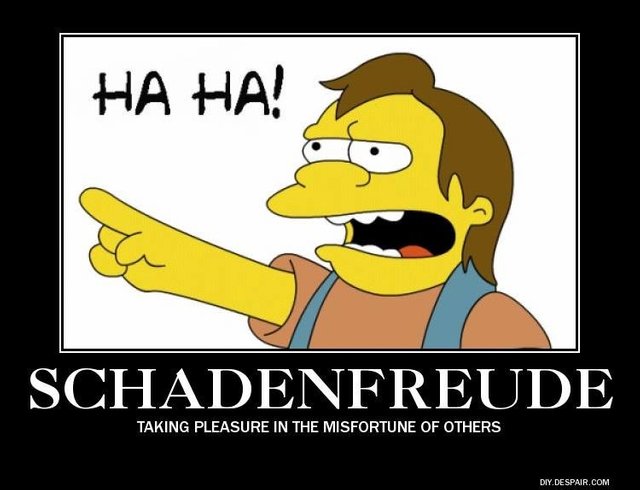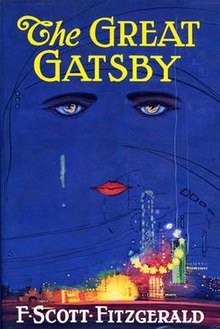Zeitgeist
This post was co-published at talanhorne.com.
They say there's a German word for everything.
Of course, part of that idea can be written off, because sometimes German words are just full sentences that had all the spaces taken out.

But it also comes from an impulse---and one that is not exclusively German---that all things under the sun ought to have a name. Every different circumstance. Every variation on an idea. And every flavor of human feeling, including all subcategories of emotion.
It is this driving force that has given the German language the richness and variety we can see today.

The Ones You Know
You have, of course, heard of Schadenfreude.

Which is a combination of the German words for "harm" and "pleasure".
Likewise, you've probably used "Gesundheit" at the sound of someone sneezing. But you may not have known that, when translated, the word is essentially a toast to the person's health.
And you'll likely be familiar with "kindergarten", "hinterland", "kaput", "wunderkind", "blitzkrieg", and "angst".
Not all of Germany's best words have been adopted into English, but there is one, of particular importance, that I must mention here. It has a great deal to do with the subject of writing, and it has a great deal of control over which works are celebrated and which are forgotten.
That word is "Zeitgeist".
Ghosts of Time and Space
Zeitgeist literally means "time ghost".

And while that may sound a bit spooky, it is usually associated with a positive (or at least neutral) meaning.
A similar concept can be found in the Latin idea of a Genius Loci. The ancient Romans believed that certain locations were protected by a guardian spirit. Or, going even further, that certain locations had their own soul, just as much as any person does.
And a Zeitgeist is much the same, except instead of being the spirit of a certain place, a Zeitgeist is the spirit of a certain era.
In modern times, the meaning has become more philosophical than literal, as people recognize that each generation of human history seems to be guided by its own code of values and culture, independent of whatever came before. This is the Zeitgeist---the spirit of the times that manifests as the overall direction of human progress for a period.
And, used correctly, it can bring the writer great success.
Capturing the Zeitgeist
When hearing about "the Zeitgeist", it is usually in the context of incarceration. People talk about catching, capturing, or containing the Zeitgeist. You would be forgiven for thinking that the Zeitgeist was some kind of fugitive, meant to be pursued and incarcerated.
But when people say "capture", what they really mean is "depict" or "define". The Zeitgeist, being an ephemeral quality of a time period, is not often easy to put into words. If you can, then you've done something spectacular.
It's not necessarily the same thing as creating an icon. A work can be timely without being iconic. And yet, the two are often seen sitting at the same table, gazing longingly into each other's eyes.
Certain books and other works can be given as examples of Zeitgeistiness. One that is often thrown around is The Great Gatsby, which captured the Zeitgeist of the Roaring Twenties.

Another famous example comes in the form of a song. American Pie by Don McLean is a tribute to, and a memorial of, the rock and roll era. The movie Forrest Gump covers a lot of the same ground, though it raises the question of whether a work can capture the Zeitgeist of an era long gone (the movie came out in 1994, well after the historical events that served as a backdrop to the story).
And, of course, there is The Third Man---a film that captured the Zeitgeist of ruined, bombed-out Vienna by filming in the real bombed-out Vienna.
But in other cases, the success of Zeitgeist-capture is not so clear. Did It's a Wonderful Life capture its Zeitgeist, demonstrating an optimistic triumph over cynicism that was true to its time? Or was it more naive in its approach to put a good face on what was a tumultuous moment in history? Or perhaps it has eschewed the Zeitgeist entirely, focusing instead on giving us something timeless. But is that better or worse than distilling the essence of a particular time period?
Furthermore, we have to ask ourselves what constitutes a "period of time"? Is it only something that can be measured on an absolute scale, such as a decade in history? Or is it something more personal and subjective, such as "childhood", "adolescence", or "the golden years". Can't those things also have their Zeitgeists?
The fluidity and ill-defined borders of a Zeitgeist are what make it difficult to pin down. But the reward is worth the struggle.
And what reward would that be, you ask?
Immortality
Time travel, as a skill, will always be valuable. And as long as it is so valued, people will need Zeitgeist-capturing works to transport them to times long past.
This causes Zeitgeisty works to become perennial classics, revisited by inquiring minds for as long as time keeps turning. The author of such works becomes required reading for future generations. He gets studied, commentated and annotated long after he is dead, and, along with that, appreciated by readers who could never have met him in person.
A timely work, like an iconic work, has its chance to leave a mark on all future generations of time. Also, a book that speaks to a generation can be sold by the boatfull to members of that generation, so there's money to be made as well.
Conclusion
Once again, we owe a debt to German linguistics.
The writer doesn't necessarily need to capture a Zeitgeist to be successful. He might not write about the time or place he lives in, but he'd be a fool not to know what that time and place currently is.
The prevailing Zeitgeist determines a lot of social trends, and if the writer can catch those winds they will take him far. And whether he successfully depicts the world around him, or simply taps into the current blend of emotions guiding the social climate, capturing the Zeitgeist remains a worthy goal.
@talanhorne,
the defining spirit or mood of a particular period of history as shown by the ideas and beliefs of the time.This is what I have found via Google! But I think I just found a better explanation via your article! This word is absolutely new to me!
Cheers~
Another wonderful and interesting post by @talanhorne sir...
The Zeitgeist (spirit of the age or spirit of the time) is the intellectual fashion or dominant school of thought that typifies and influences the culture of a particular period in time. For example, the Zeitgeist of modernism typified and influenced architecture, art, and fashion during much of the 20th century.
The German word Zeitgeist is often attributed to the philosopher Georg Hegel, but he never actually used the word. In his works such as Lectures on the Philosophy of History, he uses the phrase der Geist seiner Zeit (the spirit of his time)for example, "no man can surpass his own time, for the spirit of his time is also his own spirit."
Other philosophers who were associated with such ideas include Herder and Spencer and Voltaire. The concept counters the Great Man theory popularized by Thomas Carlyle which sees history as the result of the actions of heroes and geniuses.
Smart eork sir...
Good luck...
In my opinion you're one of the best writers here in steemit i mean in your topics and reviews, i would like to see more upvotes in your posts as a reward by the job made. Regards
You're a good knowledge person about writing and it's very difficult.
Your job is excellent Blog.
Thanks @talanhorne
Have a nice day
Good job my friend,,
This is professional writing experience and great work.
Upvote Resteem
Didn't know all those German words.
They sound really cool as well
Yup it's a really beautiful language
Nice post friend fantastic writting on Zeitgeist and its conclusion .
Please Stop
In your your last 100 comments you used 37 phrases considered to be spam. You've received 4 flags and you may see more on comments like these. These comments are the reason why your Steem Sincerity API classification scores are Spam: 62.10% and Bot: 8.60%
Please stop making comments like this and read the ways to avoid @pleasestop and earn the support of the community.
@talanhorne sir...
Zeitgeist is a word that comes straight from German — zeit means "time" and geist means spirit, and the "spirit of the time" is what's going on culturally, religiously, or intellectually during a certain period. Think about how something like Woodstock symbolized the 1960s: Woodstock was part of the Zeitgeist of the 1960s. Whatever seems particular to or symbolic of a certain time is likely part of its Zeitgeist.
Wel done and perfect work sir...
Upvoted...and resteemed...
Cheers~~~
@talanhorne, Lovely writing but I didn't understand German knowledge. Try to understand much better using translate software.